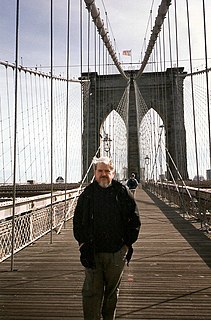A Quote by Noam Chomsky
From the 1970s, there has been a significant change in the U.S. economy, as planners, private and state, shifted it toward financialization and the offshoring of production, driven in part by the declining rate of profit in domestic manufacturing.
Related Quotes
The corporate State considers that private enterprise in the sphere of production is the most effective and useful instrument in the interest of the nation. In view of the fact that private organisation of production is a function of national concern, the organiser of the enterprise is responsible to the State for the direction given to production.
Production for sale in a market in which the object is to realize the maximum profit is the essential feature of a capitalist world-economy. In such a system production is constantly expanded as long as further production is profitable, and men constantly innovate new ways of producing things that will expand the profit margin.
During the 1960s, and again in the 1970s, growth in manufacturing productivity in the United Kingdom was the lowest of all the seven major industrial countries in the world. During the 1980s, our annual rate of growth of output per head in manufacturing has been the highest of all the seven major industrial countries.
Cold-turkey deficit reduction would cause a significant recession. A recent analysis by the Congressional Budget Office estimated that going headlong over the cliff would cause our gross domestic product, which has been growing at an annual rate of around 2 percent, to fall at a rate of 2.9 percent in the first half of 2013.
I don't want to overvalue Donald Trump as some historical rupture, and to admit that I do think Trump is an indication of a fairly profound change. But the change started a while ago, and it has taken a while to appear. Global capital, particularly western capital, has been in decline since the late 60s and early 70s. The softness appeared in the 60s, the profit rate fell off the table in 1972 - 73, and there have been very uneven recoveries. This has been an ongoing weakening of the productive economy of accumulation at a global scale, of capital's capacity to expand.



































